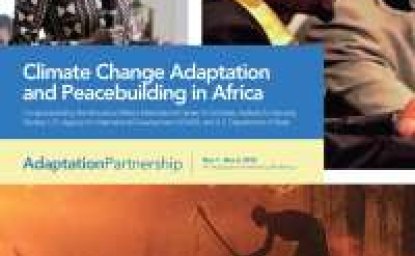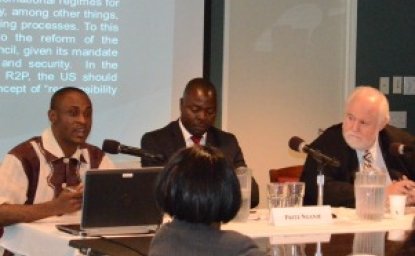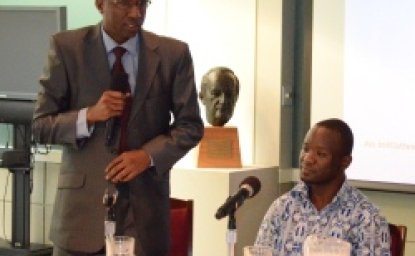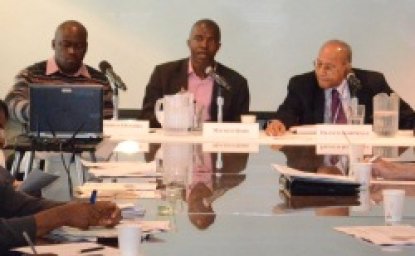Supporting stability, reconstruction, and a peaceful political transition in Iraq will only be accomplished if the rights of more than 55 percent of Iraq's population are guaranteed. As particularly effective organizers and advocates, Iraqi women have generated short-term results and facilitated broader changes within the leadership structures of Iraq. They have successfully demonstrated that they can and should play a central role in Iraq's transition to democracy.
The Conflict Prevention Project and the Middle East Program of the Woodrow Wilson International Center for Scholars and Women Waging Peace have worked with a wide range of institutions and individuals to encourage women's full participation in Iraq's reconstruction. They have helped the country's women leaders identify key priorities for ensuring security, promoting democracy and good governance, advancing women's economic rights and empowerment, building the body of constitutional law and legislation, and fostering the development of a vibrant civil society.
Since April 2003, the Wilson Center and Women Waging Peace have worked with Iraqi women to promote their empowerment and inclusion in post-conflict planning and decision-making. Participants have represented diverse political, ethnic, and religious groups, including Iraqi expatriates from the United States, Europe, and the Middle East and women living throughout Iraq. Delegation members have included four of the six current female ministers in the interim government, two members of the now-dissolved Governing Council, the first female judge in Iraq, Baghdad City Council members, and leaders from civil society and the private sector.
Building a New Iraq: Women's Role in Reconstruction reports on the proceedings of meetings in Washington, DC with Iraqi delegates, as well as the effectiveness of training workshops in Amman, Jordan and Beirut, Lebanon for Iraqi women political activists.
Download the report.
Related Links




